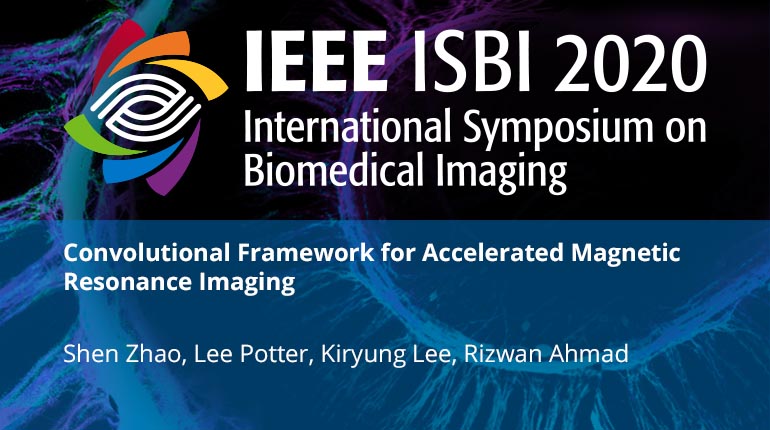
Already purchased this program?
Login to View
This video program is a part of the Premium package:
Convolutional Framework for Accelerated Magnetic Resonance Imaging
- IEEE MemberUS $11.00
- Society MemberUS $0.00
- IEEE Student MemberUS $11.00
- Non-IEEE MemberUS $15.00
Convolutional Framework for Accelerated Magnetic Resonance Imaging
Magnetic Resonance Imaging (MRI) is a noninvasive imaging technique that provides exquisite soft-tissue contrast without using ionizing radiation. The clinical application of MRI may be limited by long data acquisition times; therefore, MR image reconstruction from highly undersampled k-space data has been an active area of research. Many works exploit rank deficiency in a Hankel data matrix to recover unobserved k-space samples; the resulting problem is non-convex, so the choice of numerical algorithm can significantly affect performance, computation, and memory. We present a simple, scalable approach called Convolutional Framework (CF). We demonstrate the feasibility and versatility of CF using measured data from 2D, 3D, and dynamic applications.
Magnetic Resonance Imaging (MRI) is a noninvasive imaging technique that provides exquisite soft-tissue contrast without using ionizing radiation. The clinical application of MRI may be limited by long data acquisition times; therefore, MR image reconstruction from highly undersampled k-space data has been an active area of research. Many works exploit rank deficiency in a Hankel data matrix to recover unobserved k-space samples; the resulting problem is non-convex, so the choice of numerical algorithm can significantly affect performance, computation, and memory. We present a simple, scalable approach called Convolutional Framework (CF). We demonstrate the feasibility and versatility of CF using measured data from 2D, 3D, and dynamic applications.
 Cart
Cart Create Account
Create Account Sign In
Sign In





